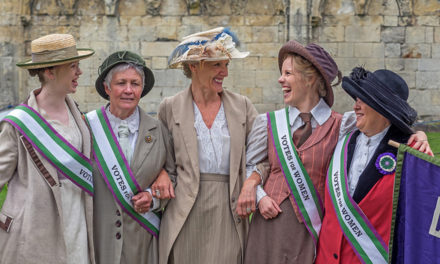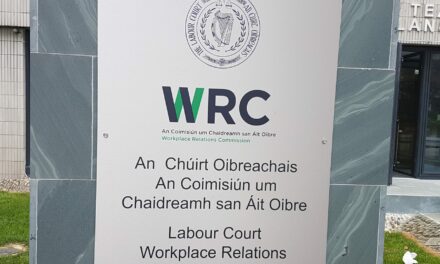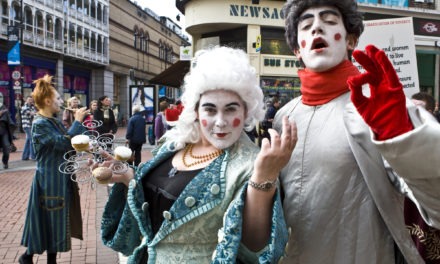In Jacksonville, Florida, STEM and community spirit are championed by a perhaps unlikely figure: 16-year-old Taylor Richardson
Taylor Richardson is one of the US’s best-known teenage activists and (hopefully) future astronaut. The 16-year-old high school student from Jacksonville, Florida, has become an advocate for girls in STEM (science, technology, engineering and mathematics) and a force to be reckoned with within her community.
Taylor made international headlines in 2016 when she raised $18,000 to send girls in her hometown to see the Katherine Johnson biopic Hidden Figures, which tells the story of three brilliant black women at NASA working to help launch an astronaut into space.
In 2018, she topped this feat by raising $100,000 to enable girls to see A Wrinkle in Time, which was based on a science-fiction fantasy novel of the same name. It features a young STEM enthusiast as its main protagonist, a mainly female cast, and many women of colour.
Explaining why she pursued these campaigns, Taylor told Good Morning America last year: “I wanted all girls, especially girls of colour, to know they can be whatever they want to be when they grow up”.
Here, she speaks to Changing Ireland about her passion, and what inspires her to be an active community member.
You’ve aspired to be an astronaut, scientist and engineer from a young age. What sparked your interest and got you started on this path?
I was always fascinated by space and by the size of the sky. Then, after reading [NASA astronaut] Dr Mae Jemison’s autobiography [Find Where the Wind Goes] about being the first African American woman to go to space, I realised that I could also be an astronaut if I put my mind to it.
So I raised money to attend space camps and kept taking classes and reading about new discoveries in space, technology and science to stay informed.
STEM – and space travel – are historically white- and male-dominated fields. What has pursuing knowledge and experience in these areas been like for you as a young woman of colour?
Honestly, it’s been tough. Adults sometimes try to discourage me because I’m young, or try to push me toward an ‘easier’ path because they had a hard time reaching their goals.
But I’m determined to travel into space even if there are not many role models that look like me in the field – partly because I’ve found lots of supporters around the country and the world who feel that, with the right push, I can reach my goals and they and their children can too.
I saw this when I started fundraising to pay for screenings for the movie Hidden Figures.
After I saw an early screening at the White House with First Lady Michelle Obama, I knew I had to do something to help young girls learn about and see the film. When the campaign spread around the world, I knew that others wanted to hear and see more about the contributions of women and people of colour in STEM and space travel.
It showed me that one person can create real change in society.
How can a career in STEM, or even an understanding of it, make a difference in someone’s life and future?
If parents and teachers explained to kids how the elements that make up STEM play such a big part in our everyday lives, more would be interested in the field.
The world needs doctors, but there are so many other fields that an understanding of STEM can lead to.
Most of us carry a cellphone in our pocket, ride in a car or bus daily, watch TV, listen to music on the radio or stream it, but never think about how they are STEM-related. If students knew at a very young age how STEM was used in the things they do every day, more would be interested and would start tinkering with inventions and coding before high school.
Why is it important for girls and young women to learn more about STEM and seek more STEM-related knowledge?
So they understand that there are no limits to what they can do, and that maths and science are not just for boys.
STEM allows for people to solve problems, and make things easier and more efficient. Because girls and young women have different experiences than boys and young men, the apps, games and tech ideas they create would be different than those created by boys. They would be super useful and unique to the experiences of their creators.
In your opinion, why should the STEM sector seek people from a wide variety of ethnicities, genders and backgrounds?
Diversity of ideas, experiences, genders and backgrounds helps to create the best products.
If everyone in the STEM sector thought the same, was from the same place and even looked the same, there would be so many problems that couldn’t be addressed properly because the problems wouldn’t be fully understood.
If all the engineers working on a project are from Asia, for example, it’s going to be hard for them to understand issues that only come up near the equator.
They say experience is the best teacher, and it also provides the best perspective when it comes to solving a wide variety of problems, which is what STEM does.
How do you think empowering girls and young women can have an impact in the broader community?
The more support girls are given, the faster their confidence will grow. When that happens, their voices get stronger, louder and more focused, and they have less fear about sharing their ideas, which might change the world.
The world has lots of problems that need to be fixed, so empowering girls and young women can only help problems get solved faster.
Your advocacy goes beyond STEM and beyond fighting for young women… You’ve also led the successful Hidden Figures and A Wrinkle in Time crowdfunding efforts and others to create scholarships for Space Camp, as well as leading a book drive.
What inspires you to continue to work to support communities?
My mom and grandma taught me the importance of community and helping others.
When my mother didn’t have the extra money to send me to space camp, my community pitched in and made it happen.
I just want to pay that back to others when I can, because sometimes you only need one person to believe in you and your life changes forever.
What would you like to see community organisations doing better to support girls and young women to foster an interest in STEM?
Equal support would be nice… Give us the same chance to make mistakes and learn that the boys and young men get.
I would like to have organisations asking our opinions about what is needed, and putting [pictures of girls] on the flyers so we know we’re included.
Understand that we don’t have to be treated differently. We just want to be treated fairly!





